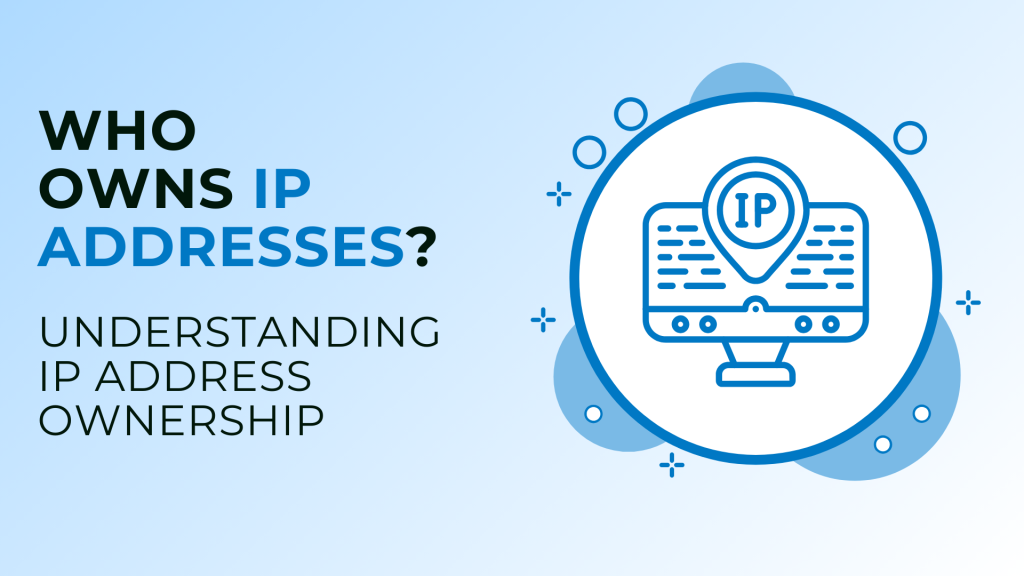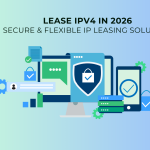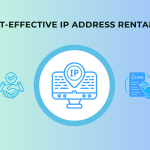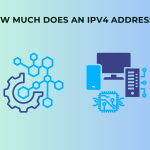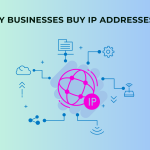IP addresses play a crucial role in the functionality of the internet, serving as unique identifiers that enable devices to communicate. However, the concept of IP address ownership is complex. This blog delves into who manages IP addresses, their allocation process, and the options businesses have for leasing or purchasing them.
Understanding IP Address Ownership
Technically, no one owns IP addresses outright. Instead, global organizations like the Internet Assigned Numbers Authority (IANA) and Regional Internet Registries (RIRs) manage them. These authorities allocate IP addresses to Internet Service Providers (ISPs), companies, and organizations under specific regulations.
Key Authorities:
- IANA: Allocates large IP address blocks to RIRs.
- RIRs: Regional organizations (e.g., ARIN, RIPE NCC, APNIC) manage IP address distribution in their respective regions.
When an organization acquires an IP address block, it gains rights to use and manage it in compliance with RIR policies.
Buying IPv4 Addresses
In the digital era, businesses often prefer to purchase IP addresses for long-term stability and control. Despite the limited availability of IPv4 addresses, a thriving secondary market exists where businesses can secure them through transfer agreements.
Benefits of Buying IPv4 Addresses:
- Control: Ownership allows for custom configurations and enhanced security.
- Cost-Effectiveness: While purchasing involves upfront costs, it eliminates recurring lease fees over time.
- Strategic Value: IPv4 addresses are scarce, making them valuable assets.
Purchasing IPv4 addresses is ideal for businesses with stable, long-term network requirements.
Leasing IPv4 Addresses
For businesses with short-term or dynamic needs, leasing IP addresses is a flexible alternative. Leasing providers offer organizations immediate access to IPv4 addresses without the commitment of a purchase.
Benefits of Leasing:
- Affordability: Avoids the high initial investment associated with buying.
- Scalability: Adjust resources as business demands change.
- Quick Access: Leasing providers often enable rapid deployment.
Leasing is particularly beneficial for startups, temporary projects, or organizations prioritizing financial flexibility
Conclusion
Although IP addresses are not owned outright, businesses can secure exclusive usage rights through purchasing or leasing. Buying IPv4 addresses provides long-term control and stability, while leasing offers a cost-effective and adaptable solution for evolving needs. Assess your organization’s goals and collaborate with a reputable provider to select the best option.
FAQs About Who Owns IP Addresses?
IP addresses serve as unique identifiers that enable devices to communicate over the internet.
No one can own an IP address outright; they are managed by global and regional authorities like IANA and RIRs.
IPv4 uses a 32-bit address space, allowing for only about 4.3 billion unique addresses. This limitation has led to their scarcity.
Leasing is ideal for short-term or flexible needs, while buying suits businesses seeking long-term stability and control.

